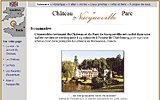RSS: keep up-to-date easily
Summary: Gone is the need to visit each website to check for changes. Let an RSS reader installed on your computer bring them to you, even a modern browser, or use an online reader. How to set this up is explained.
Overview
A new technology, RSS (terminology, below), can keep you up-to-date with changes on websites you’re interested in without the need to visit the websites yourself. You can monitor more websites and be more up-to-date in much less time. Use of RSS is spreading fast.
Websites that use this technology include news organisations (e.g the BBC; frequent updates), most blogs (often daily), this website (occasionally).
How do you keep up-to-date using RSS?
You use a newsreader (described next) to check automatically, and periodically, for changes in a newsfeed (explained below) on websites that have one. On receiving a changed newsfeed, the newsreader turns the changes into a list of headlines and summaries, with a link to the full item on the source website.
You will need a newsreader (or a modern Web browser e.g Firefox)
A newsreader is a small program you download and install on your computer, or you can use one online (a specialised website) or, increasingly, a facility built-in to modern browsers. Newsreaders popular in 2005 are:
- Windows - FeedDemon. Free trial period. Well explained, easy-to-use.
- Windows - RSSReader. Free. Simpler. Less features.
- Mac OSX - NetNewsWire
- Online - Bloglines
How to use a newsfeed
A website which publishes a newsfeed will indicate this (see right). There is not yet an agreed standard icon, but most websites will use one containing the words “RSS” ![]() or “XML”
or “XML” ![]() or “Newsfeed”. Sometimes the link will just be a text hyperlink.
or “Newsfeed”. Sometimes the link will just be a text hyperlink.
- Find the URL: On clicking on the RSS link, a page of largely unintelligible text will open in the browser. This is the page containing the newsfeed.
- Put the URL into the newsreader: From the address bar of your browser, copy the URL and paste it into the appropriate part of your chosen newsreader (in FeedDemon, select File, New, New Channel and follow the instructions). If it’s not clear, consult the newsreader’s Help.
Key terminology explained
RSS (Really Simple Syndication or RDF website Summary or Rich website Summary):
RSS is a text-based format and a type of XML (hence the appearance of “XML” on icons for some newsfeeds). RSS comes in various versions, each with slightly different capabilities. With the better newsreaders e.g. FeedDemon, you can use any version of RSS (including Atom feeds).
Newsfeed (or RSS feed or Channel):
The special page consisting of code and text which an increasing number of websites provide i.e. “publish” and to which you “subscribe”. Your newsreader will check this page periodically for changes.
Newsreader (or Aggregator):
A piece of software like a Web browser which you use to read the headlines and summaries of a newsfeed.
© 2005-26 Romily Jones
